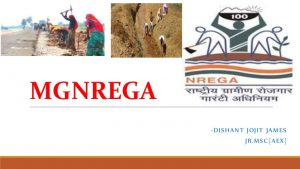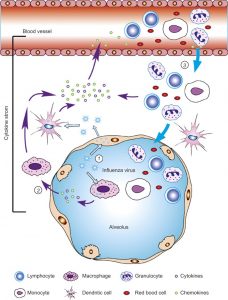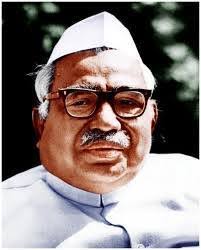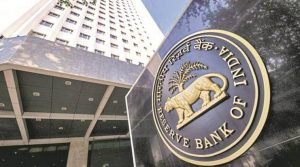Table of Contents
Daily Current Affairs for Government Exams:
Today Current Affairs:6th April 2020 for UPSC IAS exams, State PSC exams, SSC CGL, State SSC, RRB, Railways, Banking Exam & IBPS, etc
Contents:
- MGNREGA
- Cytokine storm
- Babu Jagjivan Ram
- Fraud Oversight Wing
- The Great Depression:
- Artemis Base camp
- Other important current affairs
1.MGNREGA:

A PIL has been filed in the Supreme Court demanding full wages for over 7.6 crore active job cardholders under the Mahatma Gandhi National Rural Employment Guarantee Act (MGNREGA) during the 21-day nationwide lockdown due to Covid-19 pandemic outbreak.
- PIL urged the top court to “issue uniform guidelines to all states, UTs that for the entire duration of the lockdown at least all active and registered job cardholders under the MGNREGA Act will be deemed to be at work and accordingly make full payment of their wages at the earliest.”
- It also wants the apex court to increase the entitlement from 100 days of work to 200 days per household to support rural livelihoods during the emerging economic crisis.
- It also requested the top court to direct the Centre and states to issue individual temporary job cards within 15 days to all migrants who have returned from the cities to their native villages.
- MGNREGA is a programme meant to be a lifeline to rural workers during this kind of distress circumstances.
- Therefore, it would be completely unfair to not enable MGNREGA to provide the support that it is designed to give when rural workers are facing the country’s worst challenge of unemployment and limited access to money and foodgrains.
- Over 12.2 crore labourers work in MGNREGA every year.
About MGNREGA:
- The scheme was introduced as a social measure that guarantees “the right to work”.
- The key tenet of this social measure and labour law is that the local government will have to legally provide at least 100 days of wage employment in rural India to enhance their quality of life.
2.Cytokine storm :

Of all the possible compounding effects of COVID-19, the disease caused by the novel coronavirus, the cytokine storm is one of the most feared.
- A cytokine storm is an overproduction of immune cells and their activating compounds (cytokines), which, in a flu infection, is often associated with a surge of activated immune cells into the lungs.
- The resulting lung inflammation and fluid buildup can lead to respiratory distress and can be contaminated by secondary bacterial pneumonia often enhancing the mortality in patients.
- The immune systems in our bodies protect us from bacteria, viruses, and parasites by removing them from our systems.
- The immune system gets activated by things that the body does not recognise as its own.
- These things are called antigens and include bacteria, fungi and viruses.
- An effective immune system response involves inflammation, an important and indispensable part of the process.
- Inflammation has an important protective function.
- The release of inflammatory mediators increases the blood flow to the area, which allows larger numbers of immune system cells to be carried to the injured tissue, thereby aiding the repairing process.
- If this inflammatory response is not regulated, a ‘cytokine storm’ can be triggered.
- A cytokine storm can occur due to an infection, auto-immune condition, or other diseases. Signs and symptoms include high fever, inflammation (redness and swelling), severe fatigue, and nausea
- Cytokine storms are not exclusive to coronavirus patients. It is an immune reaction that can occur during other infectious and non-infectious diseases as well.
- In the case of any flu infection, a cytokine storm is associated with a surge of activated immune cells into the lungs, which, instead of fighting off the antigen, leads to lung inflammation and fluid build-up, and respiratory distress.
3.Babu Jagjivan Ram:

Prime Minister Narendra Modi paid tributes to freedom fighter and former Deputy Prime Minister Babu Jagjivan Ram on his 112th birth anniversary.
- Jagjivan Ram (1908 – 1986), known popularly as Babuji, was an Indian independence activist and politician from Bihar.
- He was instrumental in the foundation of the All India Depressed Classes League, an organisation dedicated to attaining equality for untouchables, in 1935.
- In 1946, he became the youngest minister in Jawaharlal Nehru’s interim government, the first cabinet of India as a Labour Minister.
- He was also a member of the Constituent Assembly of India, where he ensured that social justice was enshrined in the Constitution.
- He was the Defence Minister of India during the Indo-Pak war of 1971, which resulted in the creation of Bangladesh.
- He left Congress in 1977 and joined the Janata Party alliance, along with his Congress for Democracy. He later served as the Deputy Prime Minister of India (1977–79).
- To propagate his ideologies, the ‘Babu Jagjivan Ram National Foundation’, has been set up by Ministry of Social Justice, Govt. of India in Delhi.
4.Fraud Oversight Wing:

The Reserve Bank of India (RBI) is in the process of putting together an exclusive wing for banking fraud oversight.
This wing will have teams for meta-data processing and analysis, artificial intelligence analysis units, as well as proactive risk assessment cells.
- Strength and Participation: The banking fraud oversight wing may comprise up to 600 officers along with experts from the private sector.
The RBI would hire fresh people, including industry veterans to lead the teams. - Training: Experts from the private sector working in all these domains will be brought in to train the new members in the fraud oversight wing.
- These training sessions will be repeated every year in the initial years.
- These new teams will also be given training in the latest technologies so that they can also prevent another Yes Bank kind of event.
- The RBI had been mulling ways to proactively detect such frauds after the loan fiasco at Punjab National Bank.
- The bank fraud to the tune of Rs 11,450 crore involving diamond merchant Nirav Modi. It came to light that the company, in connivance with retired employees of PNB, got at least 150 LoUs, allowing Nirav Modi Group to defraud the bank and many other banks who gave loans to him.
- As part of that plan, the banking regulator in 2019 had moved to create a separate cadre of its own employees who would work in regulation and oversight sections.
- However, the working conditions were very strict and anyone opting for that cadre would not be allowed to leave for three years.
- To overcome this problem, the RBI sought to create a fraud oversight wing.
5.The Great Depression:

With the novel coronavirus pandemic severely affecting the global economy, some experts have begun comparing the current crisis with the Great Depression — the devastating economic decline of the 1930s that went on to shape countless world events.
- The Great Depression was a major economic crisis that began in the United States in 1929 and went to have a worldwide impact until 1939. It began on October 24, 1929, a day that is referred to as “Black Thursday”, when a monumental crash occurred at the New York Stock Exchange as stock prices fell by 25 per cent.
- While the Wall Street crash was triggered by minor events, the extent of the decline was due to more deep-rooted factors such as a fall in aggregate demand, misplaced monetary policies, and an unintended rise in inventory levels.
- In the United States, prices and real output fell dramatically. Industrial production fell by 47 per cent, the wholesale price index by 33 per cent, and real GDP by 30 per cent.
- The havoc caused in the US spread to other countries mainly due to the gold standard, which linked most of the world’s currencies by fixed exchange rates.
- In almost every country of the world, there were massive job losses, deflation, and a drastic contraction in output.
- Unemployment in the US increased from 3.2 per cent to 24.9 per cent between 1929 and 1933. In the UK, it rose from 7.2 per cent to 15.4 per cent between 1929 and 1932.
- The Depression caused extreme human suffering, and many political upheavals took place around the world.
- In Europe, economic stagnation that the Depression caused is believed to be the principal reason behind the rise of fascism, and consequently the Second World War.
- It had a profound impact on institutions and policymaking globally and led to the gold standard being abandoned.
Great Depression impact on India:
- Due to the global crisis, there was a drastic fall in agricultural prices, the mainstay of India’s economy, and a severe credit contraction occurred as colonial policymakers refused to devalue the rupee.
- The decline of agricultural prices, which was aggravated by British financial policy in India, made substantial sections of the peasantry rise in protest and this protest was articulated by members of the National Congress.
- The effects of the Depression became visible around the harvest season in 1930, soon after Mahatma Gandhi had launched the Civil Disobedience movement in April the same year.
- There were “No Rent” campaigns in many parts of the country, and radical Kisan Sabhas were started in Bihar and eastern UP.
- Agrarian unrest provided a groundswell of support to the Congress, whose reach was yet to extend into rural India.
- The endorsement by farming classes is believed to be among the reasons that enabled the party to achieve its landslide victory in the 1936-37 provincial elections held under the Government of India Act, 1935– which significantly increased the party’s political might for years to come.
6.Artemis Base camp:

NASA unveils plan for Artemis ‘base camp’ on the moon beyond 2024.
- Artemis Base Camp is meant to be a long-term foothold for lunar exploration, perhaps in Shackleton Crater at the moon’s south pole.
- The Camp itself would be a lunar foundation surface habitat that could host four astronauts at the south pole for visits or perhaps a week.
- In the long term, the facility would also require infrastructure for power, waste disposal and communications, as well as radiation shielding and a landing pad.
- The base could also be a site for testing new techniques for dealing with pesky lunar dust and the long, cold lunar nights, turning local materials into resources like water, and developing new power and construction technologies.
Artemis– Acceleration, Reconnection, Turbulence and Electrodynamics of Moon’s Interaction with the Sun.
- It is NASA’s next mission to the Moon.
- Objective: To measure what happens when the Sun’s radiation hits our rocky moon, where there is no magnetic field to protect it. Artemis was the twin sister of Apollo and goddess of the Moon in Greek mythology
- With the Artemis program, NASA will land the first woman and next man on the Moon by 2024.
Other important current affairs:
1. The Government of India has set up an empowered group to undertake discussions with the private sector and international organizations on actions planned and challenges faced in dealing with COVID-19.
- The empowered group is chaired by NITI Aayog CEO Amitabh Kant.
- This Empowered Group will address the issues pertaining to the identification of problems, effective solutions, and formulation of plans with three groups of stakeholders –
- The UN agencies, World Bank, Asian Development Bank
- Civil Society Organisations and development partners
- Industry associations – CII, FICCI, ASSOCHAM, NASSCOM
2. The Supreme Court (SC) has asked the governments of Kerala and Karnataka to amicably settle the dispute over the closure of roads linking Kasaragod district (Kerala) to Mangaluru (Karnataka).
- The SC bench took up via video conferencing an appeal against the Kerala High Court order directing the opening of roads so that patients from Kasaragod can access emergency medical care facilities in Mangaluru.
- In its appeal before the Supreme Court, Karnataka contended that the opening of the roads would lead to law and order issues as local residents are wary of people from Kasaragod crossing over given that the district has the largest number of COVID-19 cases in the country.
3. The World Food Programme (WFP) has said that rapidly growing novel Coronavirus pandemic is so far having little impact on the global food supply chain, but that could change for the worse if major food importers remain anxious.:
- The World Food Programme (WFP) is the food-assistance branch of the United Nations and the world’s largest humanitarian organization addressing hunger and promoting food security.
- HQ: Rome.
- The WFP was formally established in 1963 by the FAO and the United Nations General Assembly.
4. The Railways’ Rail Coach Factory (RCF) in Kapurthala has become the first PSU to came out with a prototype ventilator that has an original design and will cost a fraction of what regular ventilators cost.
- The prototype named Jeevan will now go for final testing at the Indian Council of Medical Research (ICMR) before being put to production to aid the country’s fight against COVID-19.
- The heart of the device is the compressed air container to work the Ambu bag with air without any moving parts like servo motor or piston or link mechanism.
5. India has banned all exports of hydroxychloroquine – an anti-malaria drug that is being used in the treatment of Covid-19.
- This implies that the exceptions (export obligation and humanitarian grounds) mentioned in the previous order have come to an end.
- The Directorate-General of Foreign Trade (DGFT) had prohibited the export of the drug on 25th March 2020.
- But it left the option of export open to fulfil “export obligation” and on “humanitarian grounds”.
- The Directorate General of Foreign Trade (DGFT) organisation is an attached office of the Ministry of Commerce and Industry.
- This Directorate, with headquarters at New Delhi, is responsible for formulating and implementing the Foreign Trade Policy with the main objective of promoting India’s exports.
6. NIF invites innovative citizens to participate in Challenge COVID-19 Competition (C3).
- The initiative will not only create awareness but will intimately engage a wide cross-section of society with diverse backgrounds in providing and implementing solutions.
- National Innovation Foundation (NIF) – India: is an autonomous body of the Department of Science and Technology (DST), Government of India. Set up in February 2000 at Ahmedabad, Gujarat to provide institutional support for scouting, spawning, sustaining and scaling up the grassroots innovations across the country.
- It is India’s national initiative to strengthen grassroots technological innovations and outstanding traditional knowledge.
- Its mission is to help India become a creative and knowledge-based society by expanding policy and institutional space for grassroots technological innovators.
7. The Union Cabinet approved to cut the salary of Prime Minister and other MPs by 30%. Apart from them, the salaries of the president, governor and vice president are also to be cut
- The amount cut from the members is
- to go to the consolidated fund of India. The Cabinet has also approved that the MPLADS are to be suspended for 2 years that is between 2020-21 and 2021-22.
- With this move, GoI has saved 7,900 crores.
8. The Life Insurance council announced that the “Force Majeure” clause will apply to COVID-19 deaths. Apart from the council, Kolkata Port Trust has also invoked force majeure.
- Force Majeure clause was introduced for unforeseen circumstances.
- This includes natural disasters, accidents, epidemics, pandemics.
9. The Central Zoo Authority of the United States asked all the zoos to stay on high alert after a tiger tested positive of COVID-19. This is the first time COVID-19 infections are reported on an animal.
- A four-year-old Malayan tiger in the Bronx Zoo of New York has tested positive of Corona Virus.
- It is still not known how the disease will develop in cats.
- This is because different species behave differently.
- To date, there is no evidence that animals play a major role in COVID-19 transmission.
- Also, there is no evidence that a human can be infected by the virus from animals.
10. The Army Medical Corps Raising Day was celebrated under the motto
- Motto: “Survey Santu Nirmaya”
- The meaning of “Survey Santu Nirmaya” is “Let all the humans be free from disabilities and diseases”.
- The Army Medical Corps has been actively involved in establishing isolation, screening and treatment facilities for armed personnel. This is being done even now, in the ongoing COVID-19 crisis.
- They are known for their quality patient care




